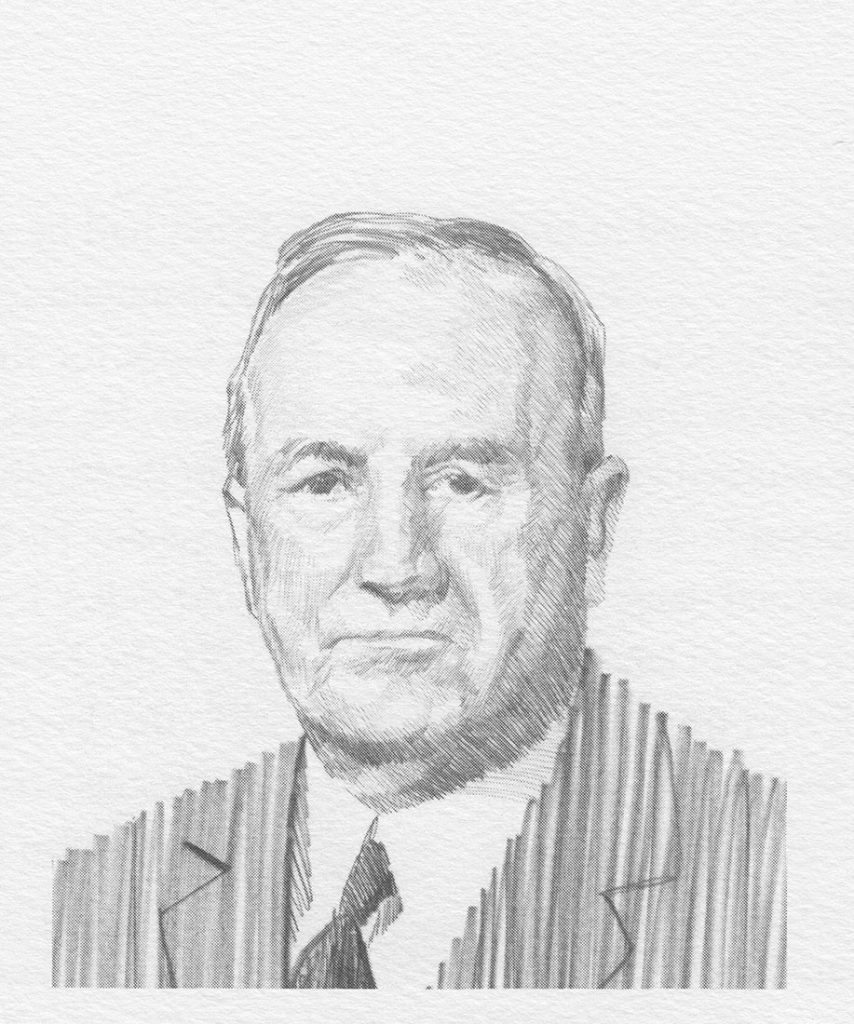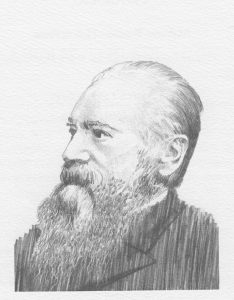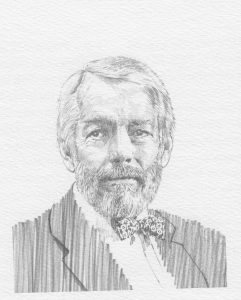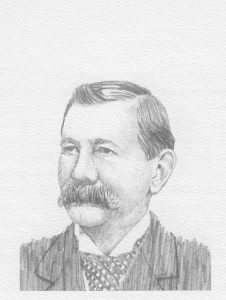Thomas Erby Kilby served as Governor of Alabama from 1919-1923, the years after World War I when society was being catapulted into the modern age. He brought to the governorship a record of business expertise and successful administrative experience, as well as a reputation as a man more interested in commercial, educational, and agricultural progress than in politics.
Thomas Erby Kilby was born in Lebanon (Wilson County), Tennessee on July 9, 1865. The son of Peyton B. and Sara Ann (Marchant) Kilby, he was educated in the public schools of Atlanta, Georgia.
In 1887, he moved to Anniston, Alabama, as station agent for the Georgia and Pacific Railroad. He continued in that position until 1889 when he saw an opportunity to establish a railway supply business with Horry Clark. Kilby rapidly demonstrated his entrepreneurial ability and soon this partnership styled Clark and Kilby, grew, and was incorporated in 1892 as Smith and Kilby, a manufacturer of railway supplies.
Under Kilby’s leadership over the next three decades, this business expanded and became a rebuilder of steam locomotives, manufacturer of railway cars, and producer of basic steel. During this expansion, the company established a steel foundry, a rolling mill, and a large forge shop. The company went through a series of name changes becoming Kilby Locomotive and Machine Works in 1903, later Kilby Car and Foundry Company, and finally Kilby Steel Company in 1938.
Kilby established a subsidiary company in 1903, Alabama Frog and Switch Company, a manufacturer of railroad switches. He served as president until this business was moved to Birmingham in the 1920s becoming Kilby Frog and Switch and later Wier Kilby Company.
Foreseeing a bright future for the cast iron pipe industry, Kilby organized the Alabama Pipe and Foundry Company. Within a decade, Anniston became the center of the soil pipe industry. In 1921, he formulated plans for the consolidation of some dozen independent plants into the Alabama Pipe Company, which became the world’s largest cast iron soil pipe manufacturer. He served as Board Chairman until his death.
Due to his business acumen, Kilby was named a Director of the City National Bank of Anniston. In 1902, he became president. When this bank merged with the Anniston National Bank to become Anniston City National Bank, he served as president until 1919, when he resigned to become Governor. He was subsequently elected chairman of the board of directors of the bank from 1923-1930.
According to reports, Thomas Kilby had given no thought to entering the political arena until 1889 when his friends persuaded him to run for the City Council. The city needed a good businessman on the council to rescue the city from potential bankruptcy. He ran, was elected, and as Finance Chairman managed to get the city finances in order during his two-year tenure.
In 1900, he was appointed to a two-year term on the Anniston City School Board. In 1905, he was persuaded to run for and was elected to the mayorship of the city. As mayor of Anniston for two successive terms, he put into operation policies of economy, law enforcement, internal improvements, and social reform which later became state policies during his term as governor.
After the successful completion of his mayorship, he traveled to Europe to study state and municipal governments of the old world. This instructive study further increased his growing interest in state government.
Thus, in 1911, Kilby ran and was elected as a state senator from Calhoun County. In 1914, he ran a successful campaign for the lieutenant governorship, and in 1918 he launched a campaign for the governorship.
During his gubernatorial campaign, Kilby allowed no one to contribute to his campaign fund and he made no commitments for any appointments, pardons, paroles, or other favors.
Kilby’s platform was simple but purposeful. As usual, he placed first importance on the introduction of business methods into the affairs of the state. He also pledged support for policies and laws to improve the educational, agricultural, commercial, and social environment in the state.
Thomas Kilby was inaugurated governor of Alabama on January 20, 1919. Then began an administration marked by achievement. With the support of the Legislature, he established the Budget Commission and revenue measures which equalized the tax burden. He improved the public highways and fostered the development of the port of Mobile. He enforced the laws of the state, especially those pertaining to prohibition, and he curtailed the pardoning power.
He initiated social legislation which has had far-ranging effects. For example, he was instrumental in improving the care of and facilities for prisoners.
Kilby Prison was one result of his efforts and at the time of its construction was considered one of the most modern in the U.S. He increased appropriations for Bryce Hospital and other institutions for the mentally ill. He sponsored legislation to provide for mentally deficient children, resulting in what is called Partlow School today. He can also be credited with the establishment of the Child Welfare Department and the Public Health Department; passage of a fair Workman’s Compensation Act; assistance to agriculture; and support of veterans.
At the end of his term, said one newspaper editor, this ‘business governor” had lifted the economy of Alabama from a “hand-to-mouth” economy to an economy that looked at least twenty-five years ahead. Another newspaper stated that Kilby’s administration had attained the status of the unique with its vast gains for education, the eleemosynary institutions, public health, and road and water transportation.
Thomas Erby Kilby, 37th Governor of the State of Alabama, died October 22, 1943, at his home in Anniston. He was survived by Mrs. Mary Elizabeth (Clark) Kilby, his wife of 49 years.
At the time of his death, Alabama leaders and newspapers again proclaimed his administration one of the finest Alabama had ever experienced. In recognition of this fact, in 1946, the state of Alabama invited the Kilby family to place a memorial plaque in the department of Archives and History in Montgomery-a building which was the culmination of the late Governor’s dedication of his money, time, and energies to a useful and enduring memorial to Alabama’s war dead. At a ceremony on October 25, 1946, Mrs. Kilby presented the plaque on behalf of the family.
Thus, the State of Alabama honors Governor Thomas Erby Kilby and assures him a permanent and illustrious place in its history.




